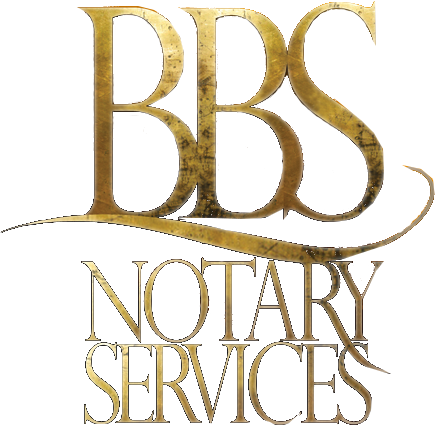FAQ
WHAT SHOULD I EXPECT WHEN BBS ARRIVES?
Notarizations consist of three parts:
- The notary public’s screening of each signer for identity.
- The notary public’s keeping record of the notarial acts. The notary will record the notarial acts in their notary journal. This process protects you and your client. They will ask all signers to sign the entry and provide us with thumbprints.
- Notary will complete a notarial certificate stating what facts the notary public is certifying during the notarization. The notary public will sign and seal the certificate, giving the transaction considerable weight in legal matters, rendering the signing of your documents “genuine on its face (i.e., prima facie evidence)” in a court of law.
HOW SHOULD I PREPARE FOR NOTARIZATION?
Make sure the borrower is present and willing to review and sign the loan documents. Also please have proper identification, which can include any of the below:
- A passport issued by the Department of State of the United States
- A passport issued by a foreign government (stamped by U.S. INS or CIS)
- A driver’s license issued by your state, or by a Canadian or Mexican public agency authorized to issue drivers’ licenses
- An identification card issued by another state
- A United States military identification card with photograph, description, signature and identifying number
- An employee identification card issued by an agency or office of the State of California, or by an agency or office of a city or county in this state
- Credible witnesses: Two people who personally know the signer and have acceptable identification are allowable if the signer does not have an acceptable form/s of identification
Click Here to determine what ID is acceptable for Notarization
DO YOU DO LAST MINUTE NOTARIZATIONS?
We can do last-minute notarizations. Call us now at 877-207-0942.
ARE YOU AVAILABLE AFTER HOURS AND ON WEEKENDS?
Yes, we are available on the weekends and after hours. Call us now at 877-207-0942.
WHAT IS A NOTARY PUBLIC?
A Notary Public is an official of integrity appointed by state government —typically by the secretary of state — to serve the public as an impartial witness in performing a variety of official fraud-deterrent acts related to the signing of important documents. These official acts are called notarizations, or notarial acts. Notaries are publicly commissioned as “ministerial” officials, meaning that they are expected to follow written rules without the exercise of significant personal discretion, as would otherwise be the case with a “judicial” official.



